HOW often do we desire to see the face of our beloved Prophet ﷺ? How often are we, when we travel to Makkah or Madina, moved by the fact that this was the place the Prophet ﷺ walked with his Sahabah, fighting the falsehood and establishing the truth. Those in Hajj experience this exceptional emotional bond for doing all what our beloved ﷺ did.
What more can increase the bond than reading about how exactly the Prophet ﷺ performed his Hajj? Do read this beautiful and comprehensive narration of Jabir (RA) regarding the Hajj of the Prophet ﷺ. Books have been written about this narration and so many benefits have been derived from this hadeeth.
Ja‘far bin Muhammad narrated on the authority of his father, saying, ‘We went to Jabir bin ‘Abdullah… I said to him, “Tell me about the Hajj of the Messenger of Allah ﷺ.”
He motioned with his hand [to indicate the figure] nine, and then stated, “The Messenger of Allah ﷺ stayed in Al-Madeenah for nine years but did not perform Hajj, then a public announcement was made in the tenth year to the effect that the Messenger of Allah ﷺ was about to perform Hajj. A large number of people came to Al-Madeenah and all of them were anxious to follow the Messenger of Allah ﷺ and do according to his doing.
We set out with him until we reached Dhul-Hulayfah. Asmaa’ bint ‘Umays gave birth to Muhammad bin Abu Bakr. She sent message to the Messenger of Allah ﷺ asking him, “What should I do?” He said: “Take a bath, bandage your private parts and put on Ihraam.” The Messenger of Allah ﷺ prayed in the mosque and then mounted his she-camel and it stood erect with him on its back at Al-Baydaa’. And I looked as far as I could see in front of me but riders and pedestrians, and also on his right and on his left and behind him like this. And the Messenger of Allah ﷺ was among us and the (revelation) of the Quran was being sent down upon him. And it is he who knows (its true) interpretation. And whatever he did, we also did that.
He pronounced the Oneness of Allah (saying): “Labbayka Allahumma labbayk, labbayk la shareeka laka labbayk, inna al-hamda wan-ni‘mata laka wal-mulk la shareeka lak (Here I am at Your service, O Allah! You have no partner. Here I am at Your service, O Allah. Verily, all the praise, the grace and the sovereignty belong to You. You have no partner.)” And the people also pronounced the same Talbiyah but with some additions. The Messenger of Allah ﷺ did not reject anything of it, but he adhered to his own (wording of) Talbiyah.”
Jabir, may Allah be pleased with him, said, “We did not have any other intention but that of Hajj only, being unaware of the ‘Umrah (at that season), but when we came with him to the House, he touched the corner (the Black Stone) and (made seven circuits) walking at a fast pace in three of them and walking at a normal pace in four. He then went to the standing place of Ibrahim, may Allah exalt his mention, (Abraham), and recited the verse (which means):{And take, [O believers], from the standing place of Abraham a place of prayer.} [Quran 2:125] And this standing place was between him and the House.
My father said (and as far as I know he mentioned it only on the authority of the Messenger of Allah ﷺ) that he recited in the two Rak‘ahs:{Say, “He is Allah, [who is] One,…}[Quran 112] and:{Say: O disbelievers…}[Quran 109] He then returned to the corner (the Black Stone) and kissed it. He then went out of the gate to As-Safa and as he reached near it he recited:{Indeed, As-Safa and Al-Marwa are among the symbols of Allah} [Quran 2:158] (adding:) I begin with what Allah the Almighty began with.
He first mounted As-Safa until he saw the House, and facing the Qiblah he declared the Oneness of Allah and glorified Him, and said: “Laa ilaaha illallaahu wahdahu la shareeka lahu, lahul mulku wa lahul hamdu, wa huwa ‘alaa qulli shay’in Qadeer. Laa ilaaha illallaahu wahdahu, anjaza wa‘dahu, wa nasara ‘abdahu, wa hazamal ahzaaba wahdahu (None is truly worthy of worship but Allah Alone, who has no partner. To Him belongs the dominion, to Him belongs all praise, and He has power over everything. He fulfilled His promise, gave victory to His servant, and defeated the confederates Alone.)”
He then made supplication in the course of that saying such words three times. He then descended and walked towards Al-Marwa, and when his feet came down in the bottom of the valley, he ran, and when he began to ascend he walked until he reached Al-Marwa. There he did as he had done at As-Safa. And when it was his last running at Al-Marwa he said: “If I had known beforehand what I have come to know afterwards, I would not have brought sacrificial animals with me and would have performed ‘Umrah. So, he who among you has not the sacrificial animals with him should put off Ihram and treat it as a ‘Umrah.”
Suraaqah bin Maalik bin Ju‘sham got up and said, “O Messenger of Allah, does it apply to the present year, or does it apply forever?” Thereupon the Messenger of Allah ﷺ intertwined the fingers (of one hand) into another and said twice: “The ‘Umrah has become incorporated in the Hajj (adding): ‘No, but for ever and ever.’”
‘Ali, may Allah be pleased with him, came from Yemen with the sacrificial animals for the Prophet and found Fatimah, may Allah be pleased with her, to be one among those who had put off Ihraam and had put on dyed clothes and had applied Kohl. He (‘Ali) showed disapproval to it, whereupon she said, “My father has commanded me to do this.”
He (the narrator) said that ‘Ali used to say in Iraq: I went to the Messenger of Allah ﷺ showing annoyance at Fatimah, may Allah be pleased with her, for what she had done, and asked the (verdict) of the Messenger of Allah ﷺ regarding what she had narrated from him, and told him that I was angry with her, whereupon he said: “She has told the truth, she has told the truth.” The Prophet ﷺ then asked ‘Ali, may Allah be pleased with him: “What did you say when you undertook to go for Hajj?” ‘Ali said, “O Allah, I am assuming Ihram for the same purpose as Your Messenger has assumed it.” He said: “I have with me the sacrificial animals, so do not put off the Ihram.”
He (Jabir) said, “The total number of those sacrificial animals brought by ‘Ali, may Allah be pleased with him, from Yemen and those brought by the Messenger of Allah ﷺ was one hundred. Then all the people except the Messenger of Allah and those who had with them sacrificial animals, put off Ihram, and got their hair shortened. When it was the day of Tarwiyah (8th of Dhul-Hijjah) they went to Mina and put on the Ihraam for Hajj and the Messenger of Allah ﷺ rode and led the Dhuhr, `Asr, Maghrib, ‘Isha and Fajr prayers there.
The Prophet then waited a little until the sun rose, and commanded that a tent of hair should be pitched at Namirah. The Messenger of Allah ﷺ then set out and the Quraysh did not doubt that he would halt at Al-Mash‘ar Al-Haraam (the sacred site at Muzdalifah) as the Quraysh used to do in the pre-Islamic period. The Messenger of Allah ﷺ however, passed on until he came to ‘Arafah and he found that the tent had been pitched for him at Namirah. There he got down until the sun had passed the meridian; he commanded that Al-Qaswaa’ (his she-camel) should be brought and saddled for him.
Then he came to the bottom of the valley, and addressed the people saying:
“Verily your blood and your property are as sacred and inviolable as the sacredness of this day of yours, in this month of yours, in this town of yours. Behold! Everything pertaining to Jaahiliyyah (pre-Islamic era) is under my feet completely abolished. Abolished are also the blood-revenges of Jaahiliyyah. The first claim of ours on blood-revenge which I abolish is that of the son of Rabee‘ah bin Al-Haarith, who was nursed among the tribe of Sa‘d and killed by Huthayl. And the usury (interest) of pre-Islamic era is abolished, and the first of our usury I abolish is that of ‘Abbas bin ‘Abdul-Muttalib, for it is all abolished.
Fear Allah concerning women! Verily you have taken them on the covenant of Allah, and intercourse with them has been made lawful to you by the words of Allah. You too have right over them, that they should not allow anyone whom you dislike to enter your home. But if they do that, you can beat them but not severely. Their rights upon you are that you should provide them with food and clothing in a fitting manner. I have left among you the Book of Allah, and if you hold fast to it, you would never go astray. And you would be asked about me (on the Day of Resurrection), (now tell me) what would you say?”
They (the audience) said, ‘We will bear witness that you have conveyed (the message), fulfilled (the mission of Prophethood) and given wise (sincere) counsel.’
He (the Prophet ﷺ) then raised his forefinger towards the sky and pointing it at the people (said): “O Allah, be witness. O Allah, be witness,” saying it thrice. (Bilal, may Allah be pleased with him, then) pronounced Adhan (call for prayer) and later on Iqamah (second call for prayer) and he (the Prophet) led the Dhuhr (afternoon) prayer. He (Bilal) then uttered Iqamah and he (the Prophet) led the `Asr (late afternoon) prayer and he observed no other prayer in between the two. The Messenger of Allah ﷺ then mounted his camel and came to the place of standing (at Arafah) making his she-camel Al-Qaswaa’ turn towards the side where there were rocks, having the path taken by those who went on foot in front of him, and faced the Qiblah.
He kept standing there until the sun set, and the yellow light had somewhat gone, and the disc of the sun had disappeared. He made Usaamah, may Allah be pleased with him, sit behind him, and he pulled the nose string of Al-Qaswaa’ so forcefully that its head touched the saddle (in order to keep her under perfect control), and he pointed out to the people with his right hand to be moderate (in speed), and whenever he happened to pass over an elevated tract of sand, he slightly loosened it (the nose-string of his camel) to climb up until he reached Al-Muzdalifah. There he led the Maghrib (sunset) and ‘Isha’ (night) prayers with one Adhan and two Iqamahs and did not observe voluntary Rak‘ahs (units) between Maghrib and ‘Isha’ prayers.
The Messenger of Allah ﷺ then lay down until dawn and offered the dawn prayer with an Adhan and Iqamah when the morning light was clear. He again mounted Al-Qaswaa’, and when he came to Al-Mash‘ar Al-Haraam, he faced the Qiblah, supplicated Allah, glorified Him, and pronounced His oneness (La ilaaha illa Allah), and kept standing until the daylight was very clear.
He then went quickly before the sun rose, and seated behind him was al-Fadhl bin ‘Abbaas, may Allah be pleased with him, and he was a man with beautiful hair, fair complexion and a handsome face. As the Messenger of Allah ﷺ was moving on, there was also going a group of women (side by side with them). Al-Fadhl began to look at them. The Messenger of Allah ﷺ placed his hand on the face of Al-Fadhl, may Allah be pleased with him, who then turned his face to the other side, and began to look, and the Messenger of Allah ﷺ turned his hand to the other side and placed it on the face of Al-Fadhl, may Allah be pleased with him. He again turned his face to the other side until he came to the midst of (the valley of) Muhassir.
He urged her (Al-Qaswaa’) a little, and, following the middle road, which comes out at Al-Jamrah Al-Kubra, he came to the Jamrah which is near the tree. At this he threw seven small pebbles, saying Allahu Akbar while throwing every one of them in a manner in which the small pebbles are thrown (with the help of fingers) and this he did in the midst of the valley. He then went to the place of slaughtering the sacrifice, and slaughtered sixty-three (camels) with his own hand.
Then he gave the remaining number to ‘Ali, may Allah be pleased with him, who slaughtered them, and he made him share his sacrifice. He then commanded that a piece of flesh from each animal sacrificed should be put in a pot, and when it was cooked, both of them (the Prophet and ‘Ali) took some meat out of it and drank its soup. The Messenger of Allah ﷺ again rode and came to the House, and offered the Dhuhr prayer at Makkah. He came to the clan of ‘Abd Al-Muttalib, who were supplying water at Zamzam, and said: “Draw water, O Bani ‘Abd al-Muttalib; were it not that people would usurp this right of supplying water from you, I would have drawn it along with you.” So they handed him a bucket and he drank from it.
Ref: Sahih Muslim, 8/170
Limited free articles. Subscribe for full access.

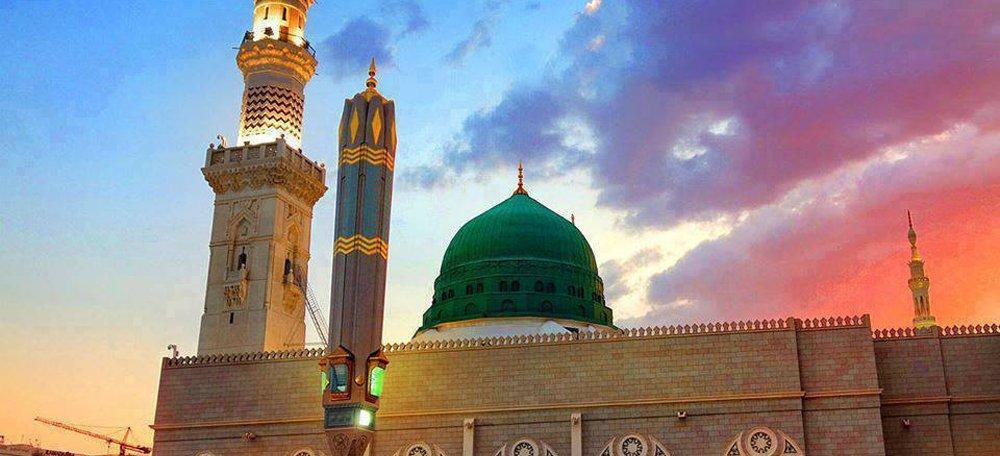
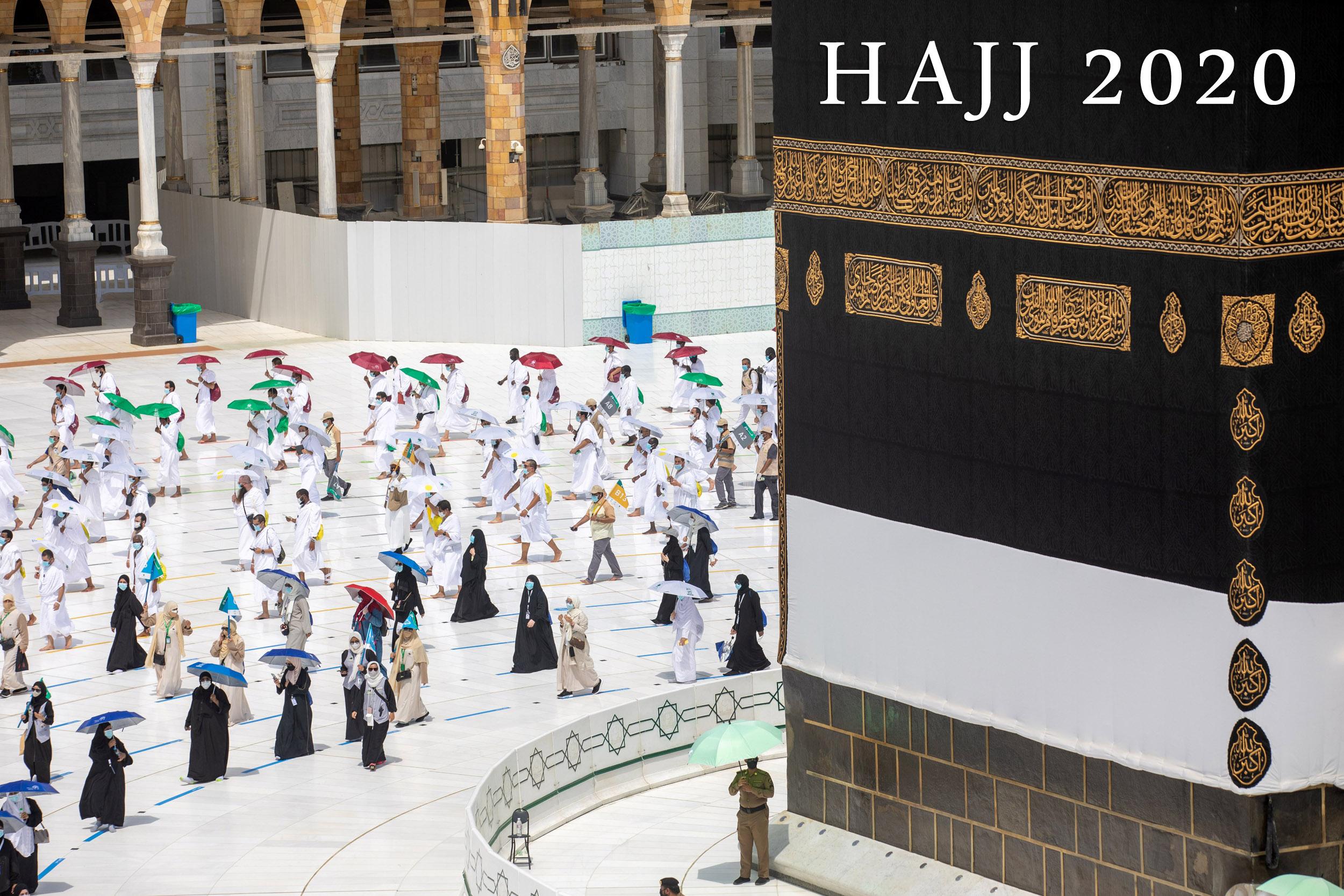
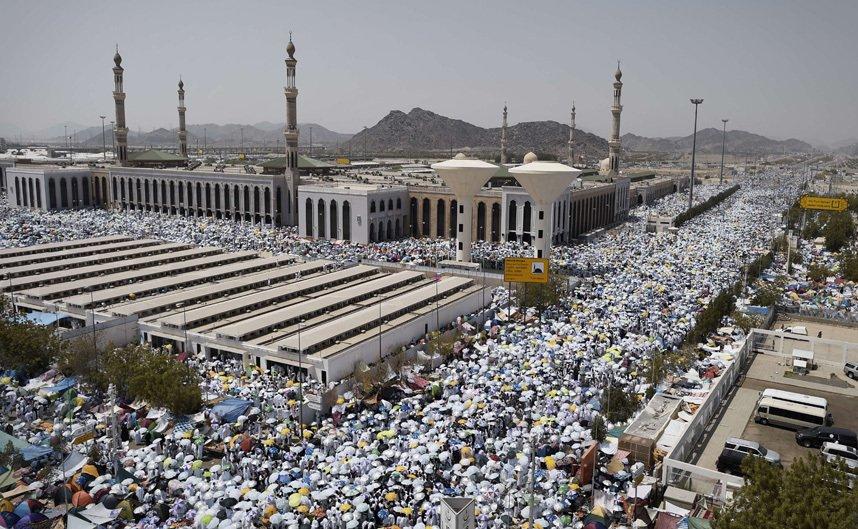
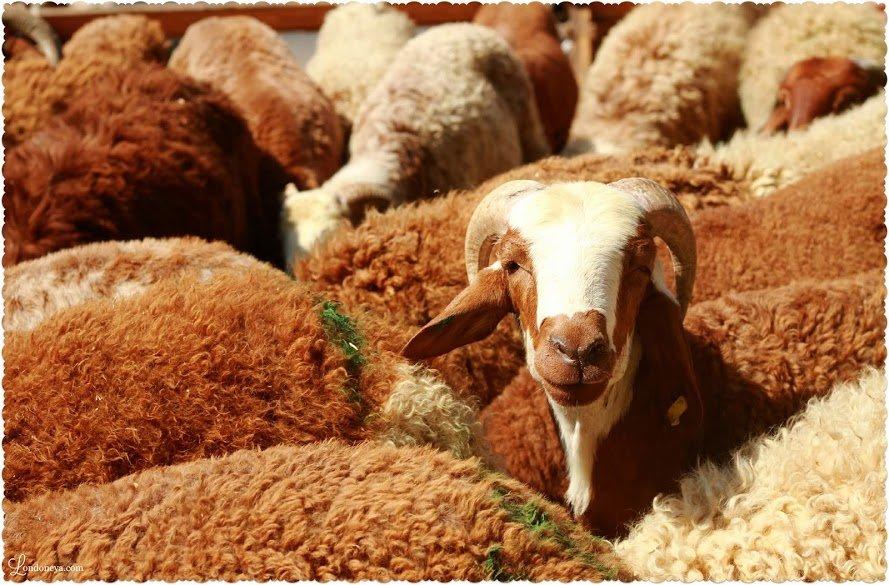
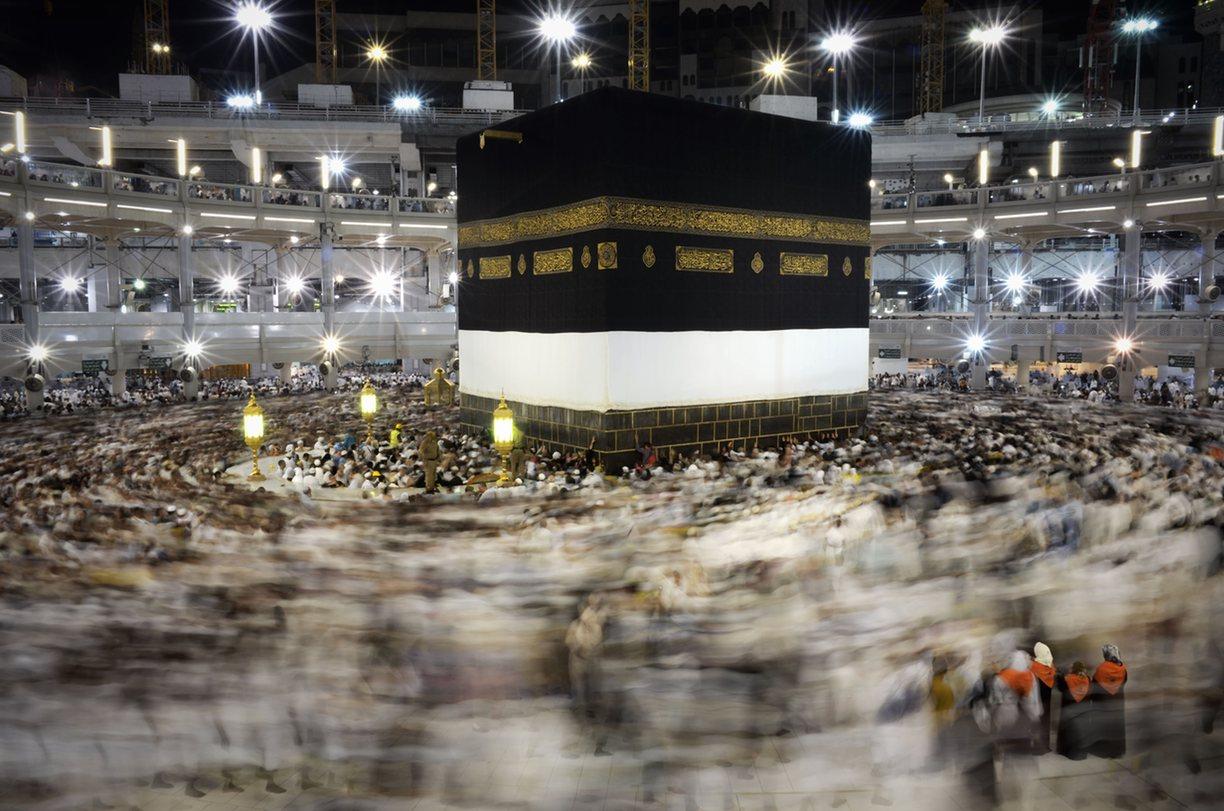
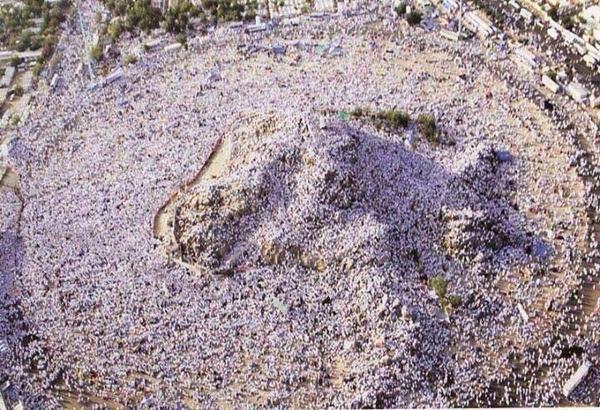

 Dr. Bilal Philips
Dr. Bilal Philips